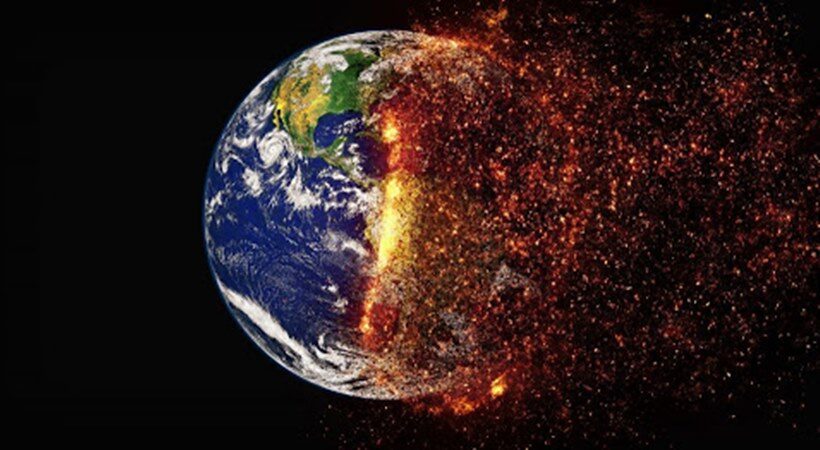Global Warming is a phrase that all of us are familiar with. We have heard how it negatively affects the Earth and how it has the potential to make the planet lifeless (human-less) if left unregulated. But what exactly do you mean by Global Warming?
Global Warming as the name suggests happens to be a phenomenon that heats the Earth. There has been a marked increase in the temperature of the Earth’s atmosphere since the industrial revolution of the 1850s. As we know, the Earth has a natural temperature that sustains life on the planet. This temperature is imparted by the rays of the sun. When the rays of the sun reach the Earth, some of it is absorbed by the rocks and oceans, and some of it gets reflected. A portion of the rays, which are reflected gets absorbed by the atmosphere with the help of greenhouse gases. This results in the warming up of Earth. This is known as the Greenhouse effect. Greenhouse gases are simply chemical compounds like water vapour (H2O), Carbon dioxide (CO2), Methane (CH4), etc. which are essential for life. But after the industrial revolution, factories, machines, etc. increased a lot, which for operational purposes burns fossil fuels. Resultantly, there was a significant rise in the emission of greenhouse gases, which led to a greater presence of greenhouse gases in the atmosphere. This in turn meant a larger entrapment of the sun’s energy in the atmosphere, causing an exorbitant increase in temperature all over the globe. Global warming is also directly linked to the occurrence of natural disasters like floods, hurricanes, and high-intensity storms apart from the melt down of glaciers and Arctic ice caps leading to a rise in the sea level. So, something has to be done to nip the problem in the bud.
One of the most challenging tasks today is to alleviate the dangers of unregulated global warming. A lot of solutions call for behavioral changes in individuals such as using bicycles instead of cars, using low emission light bulbs, refrigerators, and even changing food habits. But such suggestions can only make a minuscule change in global greenhouse gas emissions. The real consensus should come from nations across the globe. The Paris Agreement of 2015 had countries the world over agreeing to reduce their respective emissions and to take up policies that will actively counteract global warming. It encouraged the use of renewable energy sources such as wind and solar power as gradual substitutes for fossil fuels. But even after 6 years, most of the proposals of the historic convention stand in jeopardy. The Human species have progressed extraordinarily over the last century. In this era of outstanding technological innovation, it is imperative that human beings form some international consensus to tackle the beast of Global Warming. A failure to do so will prove disastrous for the future of this magnificent planet and its inhabitants.



















